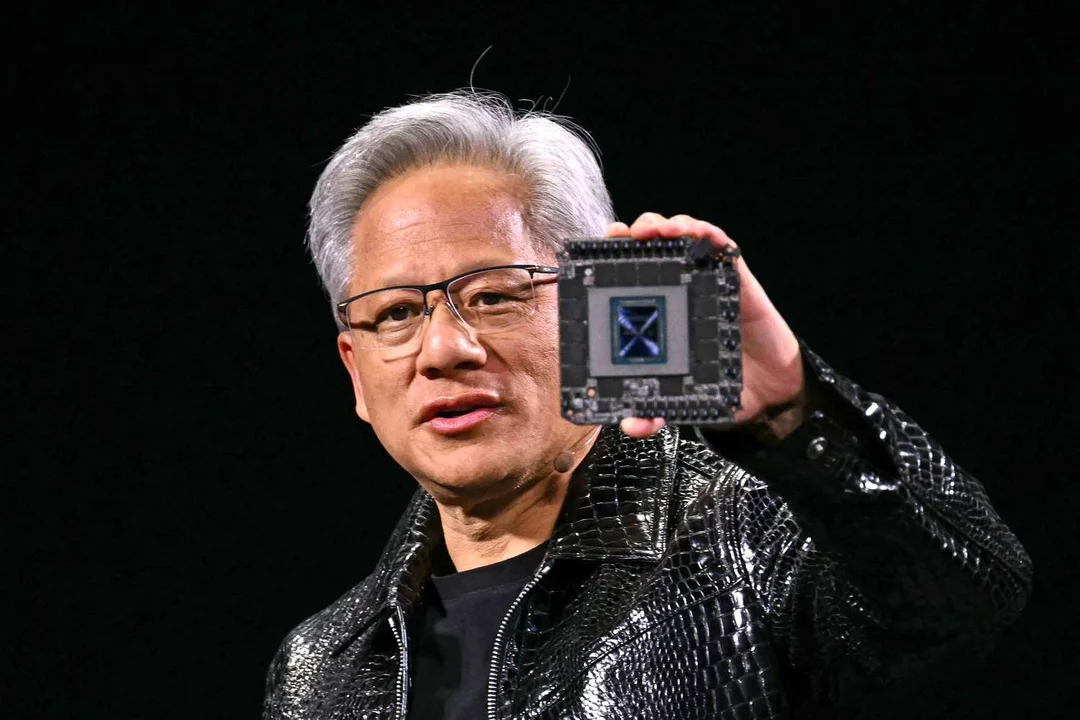
What Does Nvidia’s $5.5 Billion Hit Mean for the Future of Semiconductor Exports?
Nvidia, a leader in artificial intelligence technologies, is facing significant challenges following a surprising announcement from the U.S. government. The company will take a staggering $5.5 billion hit due to new export restrictions imposed on its semiconductor exports to China. As these changes ripple through the financial markets, investors are left wondering: what does this mean for the future of tech in a globally interconnected economy?
Early Wednesday, Nvidia's stocks plummeted nearly 6% after the revelation, making waves not just in the U.S. markets but also across the global semiconductor landscape. The company's regulatory filing disclosed that it would require a special license to export its H20 chips specifically designed for the Chinese market.
According to Jefferies analyst Blayne Curtis, the move effectively acts as a ban, putting Nvidia at a severe disadvantage in a lucrative market. Historically, the U.S. government has expressed concerns that such chips could bolster China’s capabilities in areas like AI supercomputers. The implications of this decision extend beyond Nvidia, affecting other tech giants like Advanced Micro Devices (AMD) and triggering a domino effect of stock declines across other semiconductor firms, including Broadcom and Qualcomm.
The situation unfolds against a backdrop of fluctuating policies regarding trade and technology under the Trump and Biden administrations. In a notable turn of events, the Trump administration had reportedly stepped back from a more aggressive stance against Nvidia’s exports after a meeting with its CEO, Jensen Huang, earlier this year. This latest restriction, however, has left industry analysts baffled and cautious.

Analysts remain divided on the rationale behind this decision. While some argue that banning the H20 makes little sense given its performance is subpar compared to existing Chinese alternatives, critics warn that the U.S. might end up ceding ground in the rapidly evolving AI market to competitors such as Huawei. Bernstein analyst Stacy Rasgon has pointed out that this ban will likely hand the Chinese AI market to their rivals without significant pushback from U.S. companies.
The global semiconductor industry is already reeling from the implications of these restrictions, with major players in Asia and Europe experiencing declines in their stock values. The Dow Jones dipped by 0.6%, and the tech-heavy Nasdaq index fell over 2%, while companies like Samsung Electronics and TSMC faced significant losses.
Looking ahead, this trade restriction raises pressing questions about the future of global collaboration in technological advancement. With semiconductor technology serving as the backbone of various industries, these changes could stifle innovation and competition that ultimately benefit consumers. As the situation evolves, stakeholders from investors to policymakers will need to consider the broader implications of trade policy on technology and innovation.
In light of the rapid developments, readers are invited to weigh in: How do you think these export restrictions might reshape the semiconductor industry and global tech landscape? Leave your thoughts in the comments below.
Related issues news
What are H20 chips?
The H20 is an AI chip specifically for the China market to comply with strict export controls developed under the Biden administration. The H20 is similar to the H100 Hopper chip used in the U.S. and most other markets, but with slightly slower speeds. Both are a step down from Nvidia's new Blackwell chips.
What is NVDA H20?
For Nvidia, the H20 is its most advanced chip available for sale in China and is central to its efforts to stay engaged with China's booming AI industry.